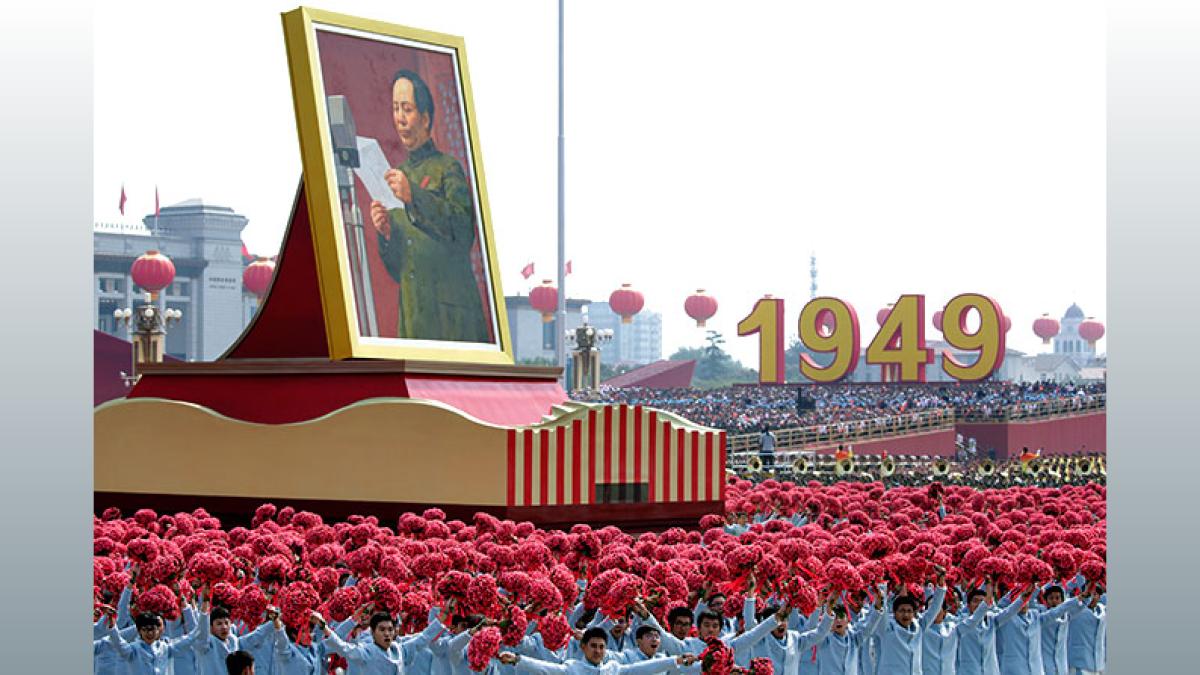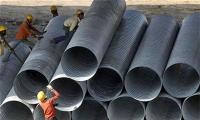Anti-Dumping Duty on Printed Circuit Boards from China, Hong Kong
India's DGTR recommends anti-dumping duty on printed circuit boards (PCBs) imported from China and Hong Kong for 5 years to protect domestic industry from cheap imports.

Photograph: Jason Lee/Reuters
New Delhi, Jan 5 (PTI) The commerce ministry's arm DGTR has recommended imposition of anti-dumping duty on imports of printed circuit boards imported from China, Hong Kong for five years to protect the domestic industry from cheap inbound shipments.
The Directorate General of Trade Remedies (DGTR) has recommended the duty after conducting an investigation on the dumped imports of these boards from these two countries.
The PCBs (printed circuit boards) are assembled with electronic components like transistors, resistors, and capacitors. It is used in cars, telephones, ovens, toys, televisions, computers, and lighting solutions.
"The authority recommends imposition of anti-dumping duty on the imports of the subject goods originating in or exported from China and Hong Kong for a period of five years...," the DGTR's notification has said.
It added that imposition of the duty would not affect the availability of the product to the customers.
The Indian Printed Circuit Association has filed an application for the imposition of anti-dumping duty on the imports from China and Hong Kong.
The directorate in its findings has concluded that the domestic industry has suffered due to the dumped imports.
It also said that while the domestic industry has been able to increase the selling price at present due to concentration on profitable segments, the continued imports at dumped prices has not allowed it to increase the sales beyond those segments and pose a threat of price suppression and depression on the domestic industry.
The recommended duty was in the range of 8.23 per cent to 75.72 per cent of CIF (cost insurance freight) value.
While DGTR, which is under the commerce ministry, recommends the duty, the finance ministry takes the final decision to impose the same within three months of the recommendation.
Countries initiate anti-dumping probes to check if their domestic industries have been hurt because of a surge in below-cost imports. As a countermeasure, they impose duties within the multilateral regime of the WTO (World Trade Organization).
Anti-dumping measures are taken to ensure fair trade and provide a level-playing field to the domestic industry. It is not a measure to restrict imports or cause an unjustified increase in the cost of products.
The Directorate General of Trade Remedies (DGTR) has recommended the duty after conducting an investigation on the dumped imports of these boards from these two countries.
The PCBs (printed circuit boards) are assembled with electronic components like transistors, resistors, and capacitors. It is used in cars, telephones, ovens, toys, televisions, computers, and lighting solutions.
"The authority recommends imposition of anti-dumping duty on the imports of the subject goods originating in or exported from China and Hong Kong for a period of five years...," the DGTR's notification has said.
It added that imposition of the duty would not affect the availability of the product to the customers.
The Indian Printed Circuit Association has filed an application for the imposition of anti-dumping duty on the imports from China and Hong Kong.
The directorate in its findings has concluded that the domestic industry has suffered due to the dumped imports.
It also said that while the domestic industry has been able to increase the selling price at present due to concentration on profitable segments, the continued imports at dumped prices has not allowed it to increase the sales beyond those segments and pose a threat of price suppression and depression on the domestic industry.
The recommended duty was in the range of 8.23 per cent to 75.72 per cent of CIF (cost insurance freight) value.
While DGTR, which is under the commerce ministry, recommends the duty, the finance ministry takes the final decision to impose the same within three months of the recommendation.
Countries initiate anti-dumping probes to check if their domestic industries have been hurt because of a surge in below-cost imports. As a countermeasure, they impose duties within the multilateral regime of the WTO (World Trade Organization).
Anti-dumping measures are taken to ensure fair trade and provide a level-playing field to the domestic industry. It is not a measure to restrict imports or cause an unjustified increase in the cost of products.
You May Like To Read
TODAY'S MOST TRADED COMPANIES
- Company Name
- Price
- Volume
- Vodafone-Idea-L
- 11.65 (+ 3.56)
- 106772451
- Alstone-Textiles
- 0.28 ( -3.45)
- 44187760
- Mangalam-Industrial
- 0.88 ( -2.22)
- 39177573
- Sunshine-Capital
- 0.27 (+ 3.85)
- 35956340
- GMR-Airports
- 104.40 (+ 6.37)
- 30453005



